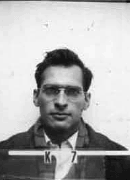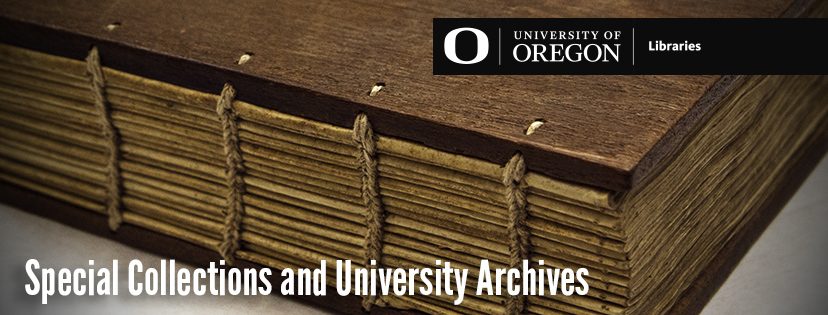Progress With Limits: President Olum’s Quest for Change
This is the ninth of a series of blog posts highlighting the ongoing work of the Documenting UO History Project within the University Archives. A major part of this project is researching and documenting the often untold and hidden histories of the university’s diverse and underrepresented communities. This year our focus will continue to highlight Black history on campus, specifically Black student activism from the 1960s to present. Prior posts can be seen here.
The Governor — and others — have complained that President Olum can’ t have it both ways — continue to assert that the University of Oregon is of the quality of some of the best public universities in the United States and argue at the same time that faculty salaries at the University of Oregon are abysmally low compared with other institutions, and that this makes it extremely difficult to compete in the hiring of the best young faculty and in retaining our leading senior faculty against very large offers from various universities. Now, the truth is that it really is both ways. Our salaries are terribly, dangerously low and yet we are surely among the best 20 public universities in the United States and, in a number of areas, significantly better even than that. -President Olum, State of the university Address, 1987

Paul Olum stepped into the role of university president at Oregon with decades of academic experience. Having just served as provost at the University of Oregon, Olum had been groomed to take over for President Boyd (see previous post on Boyd). Olum started his illustrious academic career in mathematics, even working on the Manhattan Project at one point. He earned his bachelors in physics from Princeton in 1940, an M.A in physics from Princeton in 1942, and a PhD in mathematics from Harvard in 1947. Olum later served as a very popular and distinguished professor of mathematics at Cornell, and had a short stint at the University of Texas before beginning his tenure at Oregon.
Olum quickly developed a positive repoire with both students and staff. Politically progressive, Olum publically called for nuclear disarmament and fought to make the University of Oregon more inclusive for all students. Although Olum’s tenure avoided the contention that filled the 1960s and 1970s, Olum faced recurring budget restraints and struggled to recruit more minority students to the Eugene campus.
Olum spent years attempting to increase the minority student base. He worked with the ACLU and other organizations to not only increase the minority student population, but to make the campus a comfortable environment for people of all backgrounds. Olum helped to form and steer the Committee on Minority Recruitment and Retention. He took his role with the committee seriously and believed that the president’s participation both administratively and amongst students was vital. Olum also incentivized teachers to participate in the process and committee (President Olum’s Records, UA001.014, Box 11, Folder 2).

Olum was generally admired and respected by faculty. Having been a professor, Olum had a deep regard for educators. In fact, his relentless fight to increase faculty pay and benefits was something he took directly to the board of directors. In his 1987 state of the university address, Olum said, “Our salaries are terribly, dangerously low and yet we are surely among the best 20 public universities in the United States and, in a number of areas, significantly better even than that…I hardly have to prove to this Assembly how poor our salary level is. We are flat bottom in the MU and we are at the bottom of every list of reasonable comparator institutions. In the list of public, doctoral-granting institutions in the country, a list which includes some 106 or 107 universities, our average faculty salary in 1985-86 was 97th and for full professors 101st.” (http://pages.uoregon.edu/assembly/Assembly1987-1988ALL.html)
Shortly after Olum’s state of the university address in 1987, the executive committee of the board informed Olum that he needed to retire by June 30, 1989. This decision was met by widespread disapproval from university faculty, students and the entire community. The university senate unanimously voted to appeal the decision at the next Board of Directors meeting. Despite the unpopular decision, Olum addressed the assembly on December 2, 1987 and encouraged everyone in attendance not to focus on his retirement. Olum said, “Before anything else, let me say how extraordinarily much it has meant to me to have the kind of support that I have received from faculty staff, students, the Eugene/Springfield community, and so many, many other people around the state. In particular, the Alumni Association and many alumni chapters, under the leadership of John Gragg, Oliver Collins, and Douglas White, have been just wonderful — unbelievably wonderful. This outpouring of affection and support has been beyond anything I could have imagined, and it has made a lot of difference to me. In the middle of a very unhappy situation, this expression from colleagues, students, and friends has been a tremendous compensation and it has certainly helped to sustain me… I have loved my time at the University and I love being president; it has been just great. But I would have to retire some time anyhow, obviously, and I would be sorry whenever the time came. Three years, or two years, is not going to make that much difference in my life.” (Olum Presidential Records, UA001.014, Box 11, Folder 2)
Students, community members and staff fought the board and chancellor’s decision all the way up until Olum’s retirement. The board’s decision mirrored the unpopular decision to release Oregon President Fleming in the 1960s. Both Olum and Fleming were progressive presidents who often challenged the State Board of Higher Educations stances on a variety of issues ranging from faculty pay to minority recruitment. Even the president of the university faces what can be unsurmountable obstacles when pursuing positive change.
Each month new blog posts will include recent findings as part of the overall project and research. This is a very collaborative and open project so we welcome all participation and topic suggestions. This project will only be successful with a diverse community of scholars and students working together to find and document these testimonies. If you or anyone you know is interested in contributing to the process or participating in an oral history interview please contact us.
Joseph Foley
Student Research Assistant
Documenting UO History Project
References:
Olum Presidential Records, UA001.014, Box 11, Folder 2
http://pages.uoregon.edu/assembly/Assembly1987-1988ALL.html
https://president.uoregon.edu/history
http://news.cornell.edu/stories/2001/01/mathematician-paul-olum-who-became-president-university-oregon-dies-82
http://www.lanl.gov/history/wartime/staff.shtml
https://oregondigital.org/sets/uo-athletics/oregondigital:df669157n

